















1. of, inhabiting, or situated on the bank of a river
2. a dweller on the bank of a river
Not a long drive away from Mumbai, a mountainous landscape rises up, called the Western Ghats. From this UNESCO world heritage area, numerous rivers and streams find their way down through an undulating landscape eventually feeding into the Bombay bay. The Riparian House is placed below the crest of a hillock at the foothills of the Ghats near Mumbai. The top of a vegetated roof merges with the top of the hillock, hiding the house while approaching. The subterranean house almost becomes a cyborg: part natural, part artificial.
A box like volume is inserted under this roof to merge with the terrain. The roof allows wild grass and vegetation to grow over it. From above, the strong geometry of the house seems to merge with the contours of the hill. It forms a hybrid of a half made, half found landscape. The underground house emerges from walls that are imagined as “incisions” in the landscape. They allow the interior spaces to relate to the landscape at various levels. The experience of being inside the earth is enhanced through the stone boulders which were discovered during the excavation process and retain the earth. This rock carved courtyard becomes the staircase. It cuts through the roof and travels through the interior of the house, extending onto the landscape. It creates another movement between architecture and the terrain.
Inside the house one can enjoy the views to the north of the Irshalgad hill fortress and towards the west, the sunset while the river winds its way across the agricultural fields. The kitchen occupies a central position along with the open to sky courtyard. It is flanked on either side by two bedrooms at the two far ends. These spaces are embedded in the earth with windows brining in ample light from above and the river side. A master bedroom, bathroom, dining and living area sit along the front, a more open face of the house. Both the living room in the western corner of the house and the master bedroom in the northern corner enjoy panoramic views to the river.
A wrap around verandah provides shade from the sun and protection in the rains. In front of this, a rhythmic row of bamboo poles is placed at close intervals in front of the house to create a layer of privacy without obstructing the spectacular view of the river and the mountains beyond. The bamboo screen causes an ever-changing pattern of light and shadow throughout the seasons and times of the day, making the Riparian House a ‘sensor’ of light. A large timber deck in front of the living room cantilevers off towards the river, becoming a viewing platform and gathering space for the family.
Project Name
the Riparian House Karjat
Location
Mumbai, India
Year
2015
Type
Themes
Sustainability, Bamboo, Green roof
Size
300 sq.m.
Program
House for a family
Photographer
Ariel Huber
Publications
Awards
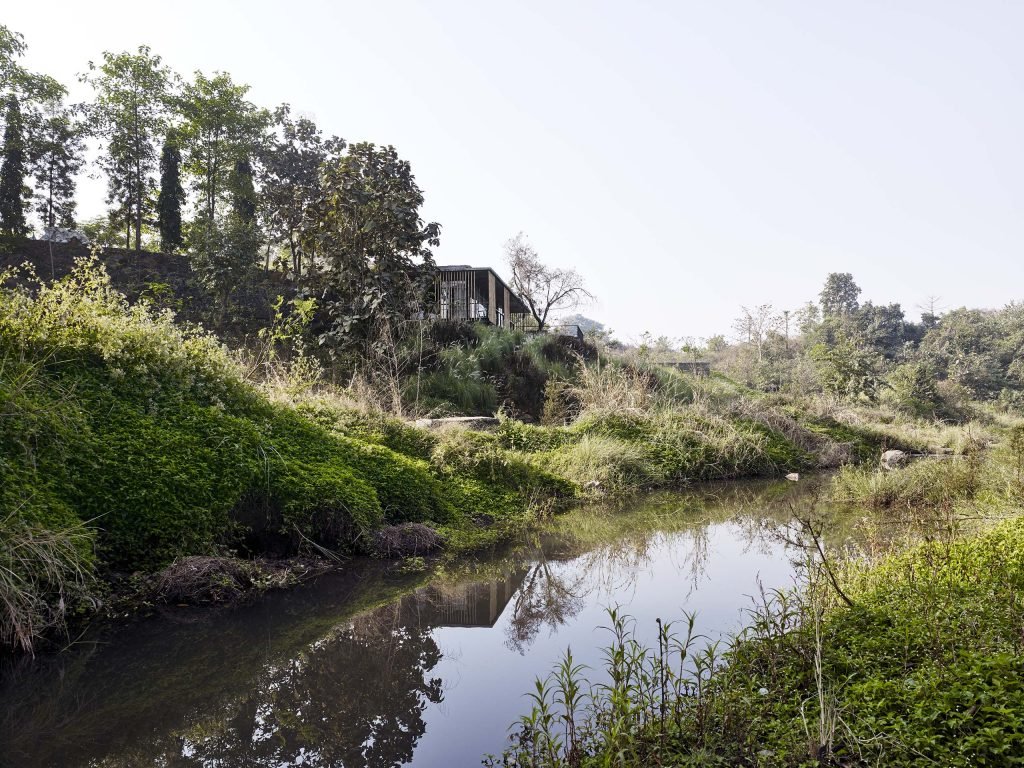
A vegetated green roof merges with the top of the hillock, hiding the house from the approach on the east side.
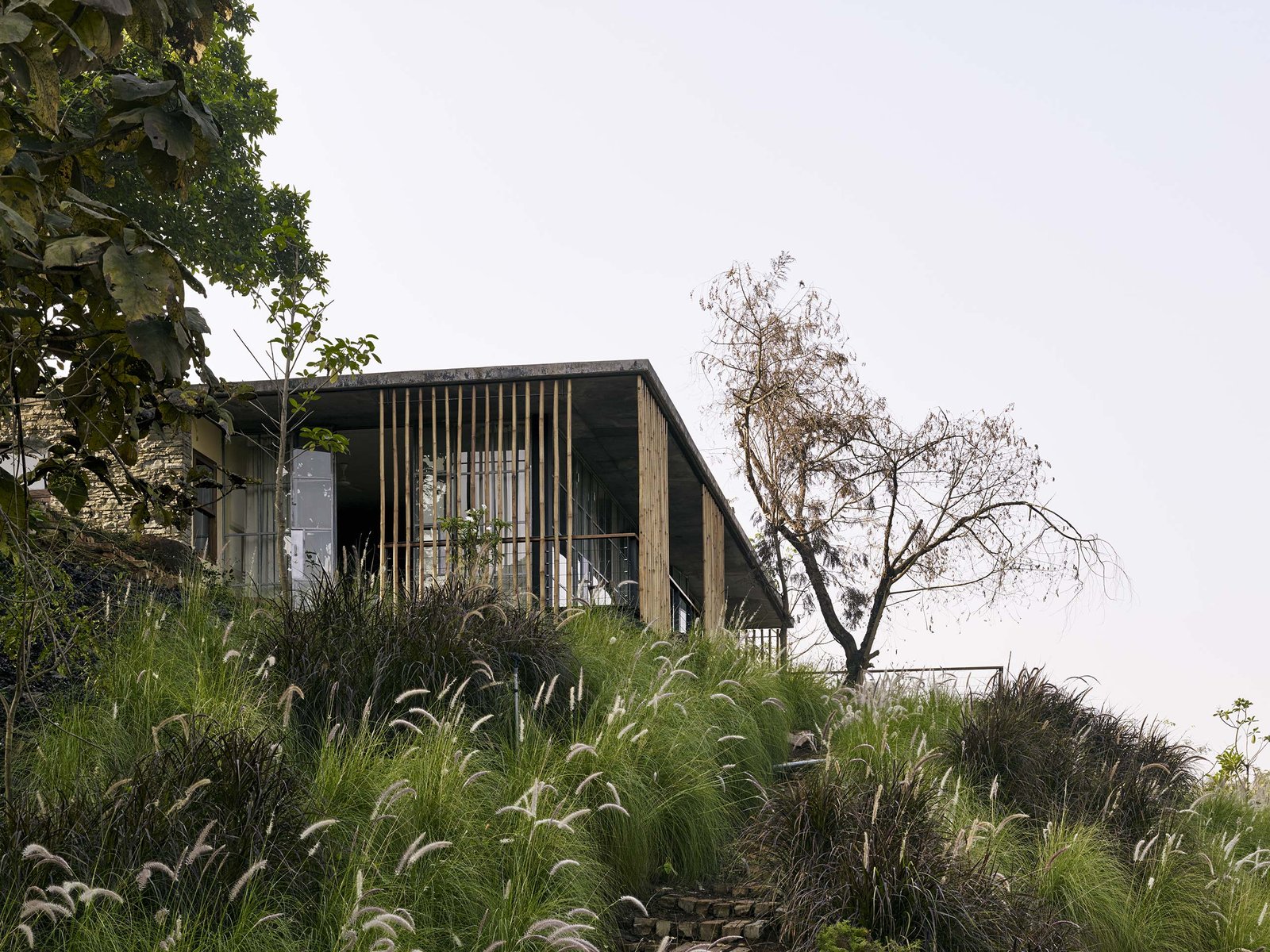
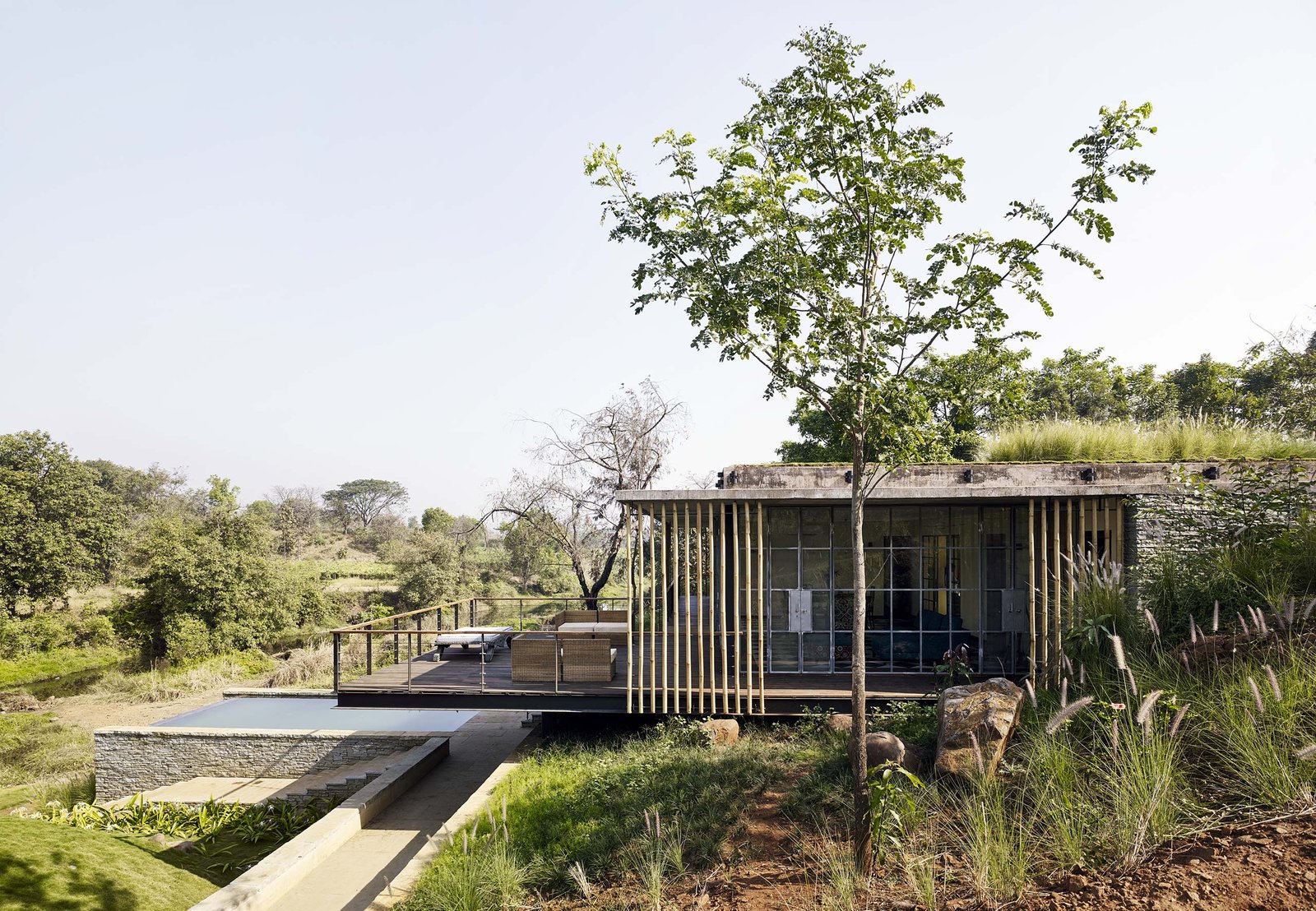
A bamboo enclosure creates a dialogue between the interior and the dramatically changing landscape.
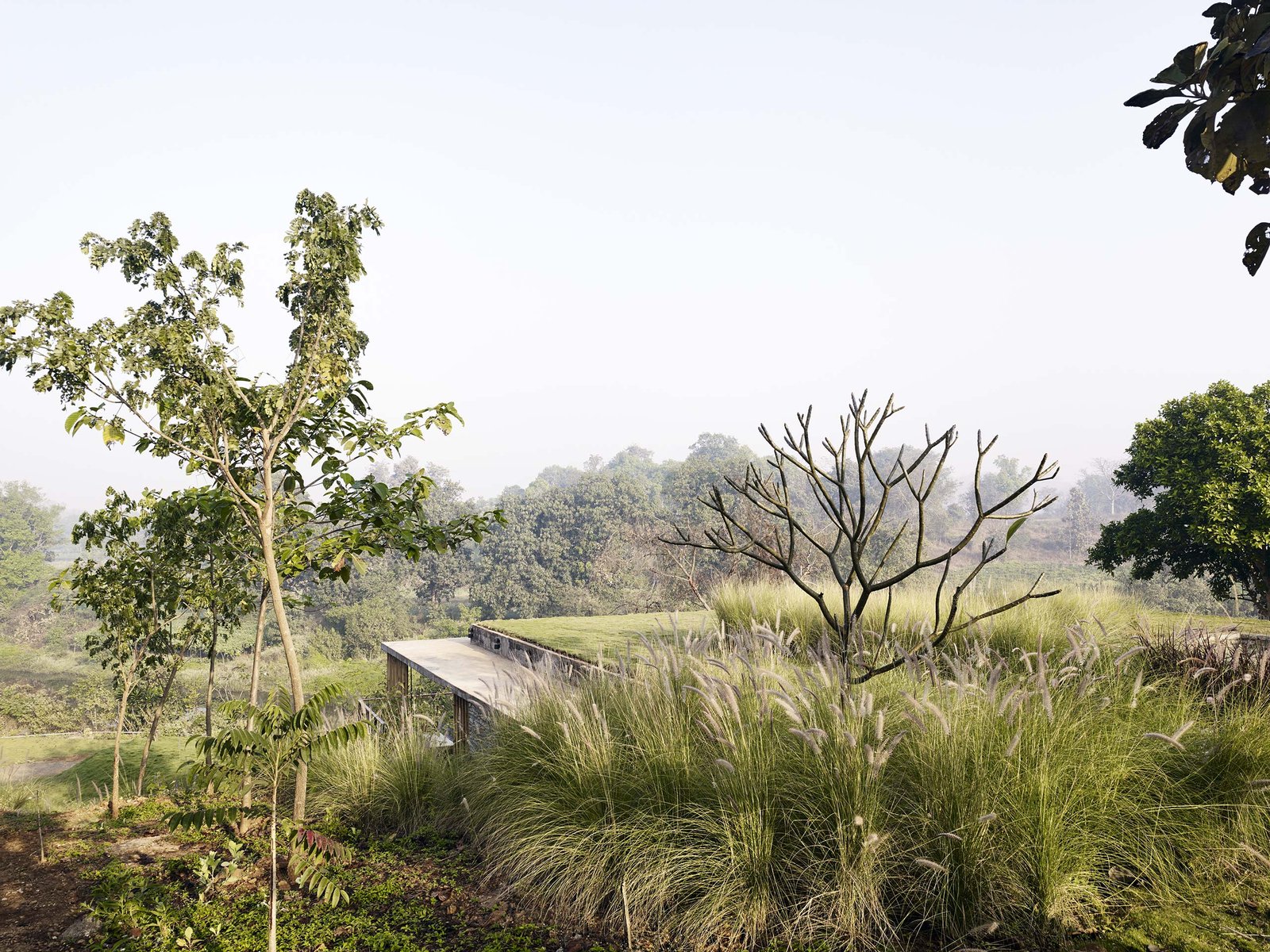
From the top, the roof seems to be an extension of the natural landscape, enhancing the under-statedness of the house.
Since the most of the site is steeply sloping with a 1:4 gradient, the vegetated roof gives the subterranean house an additional usable area.
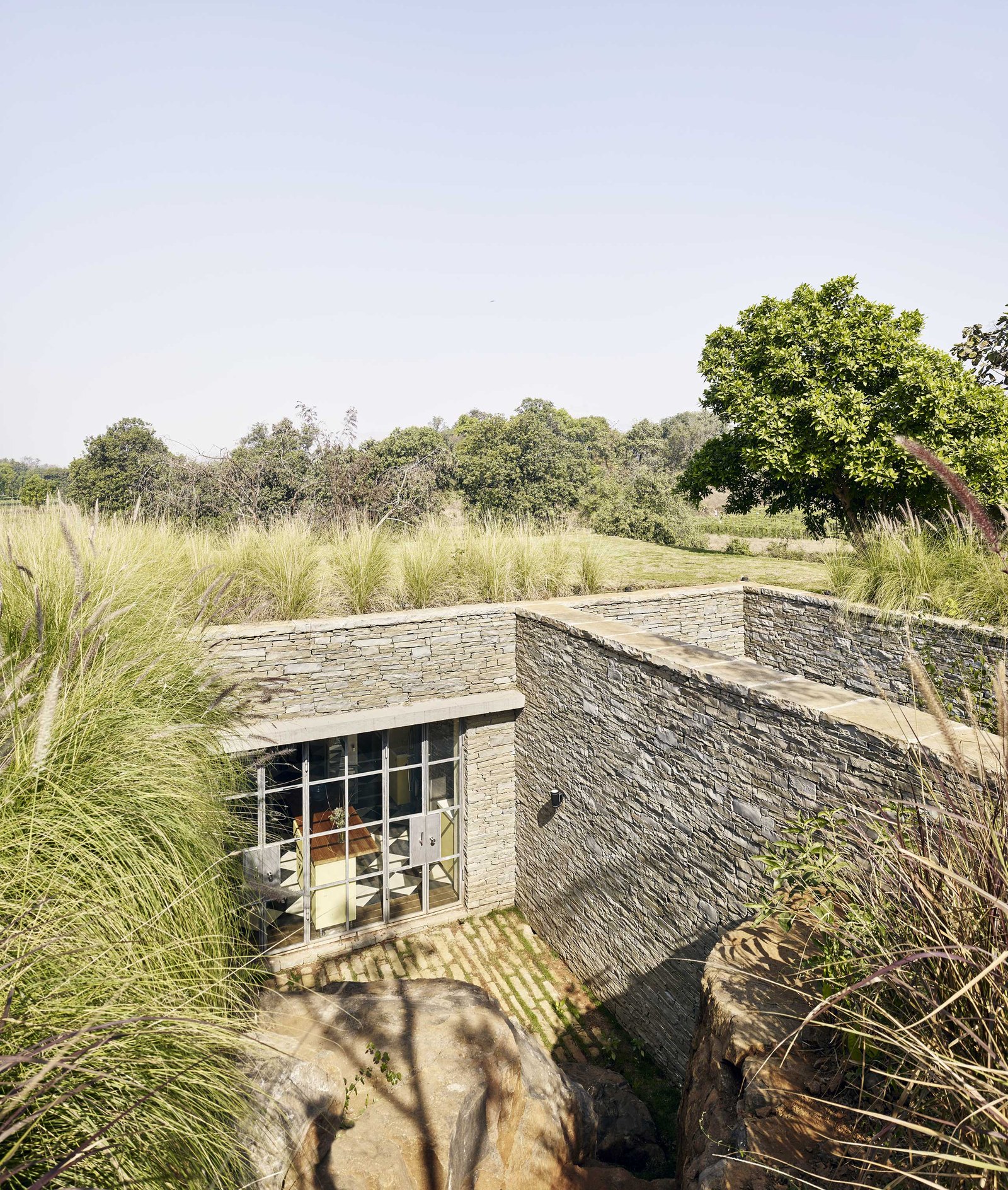
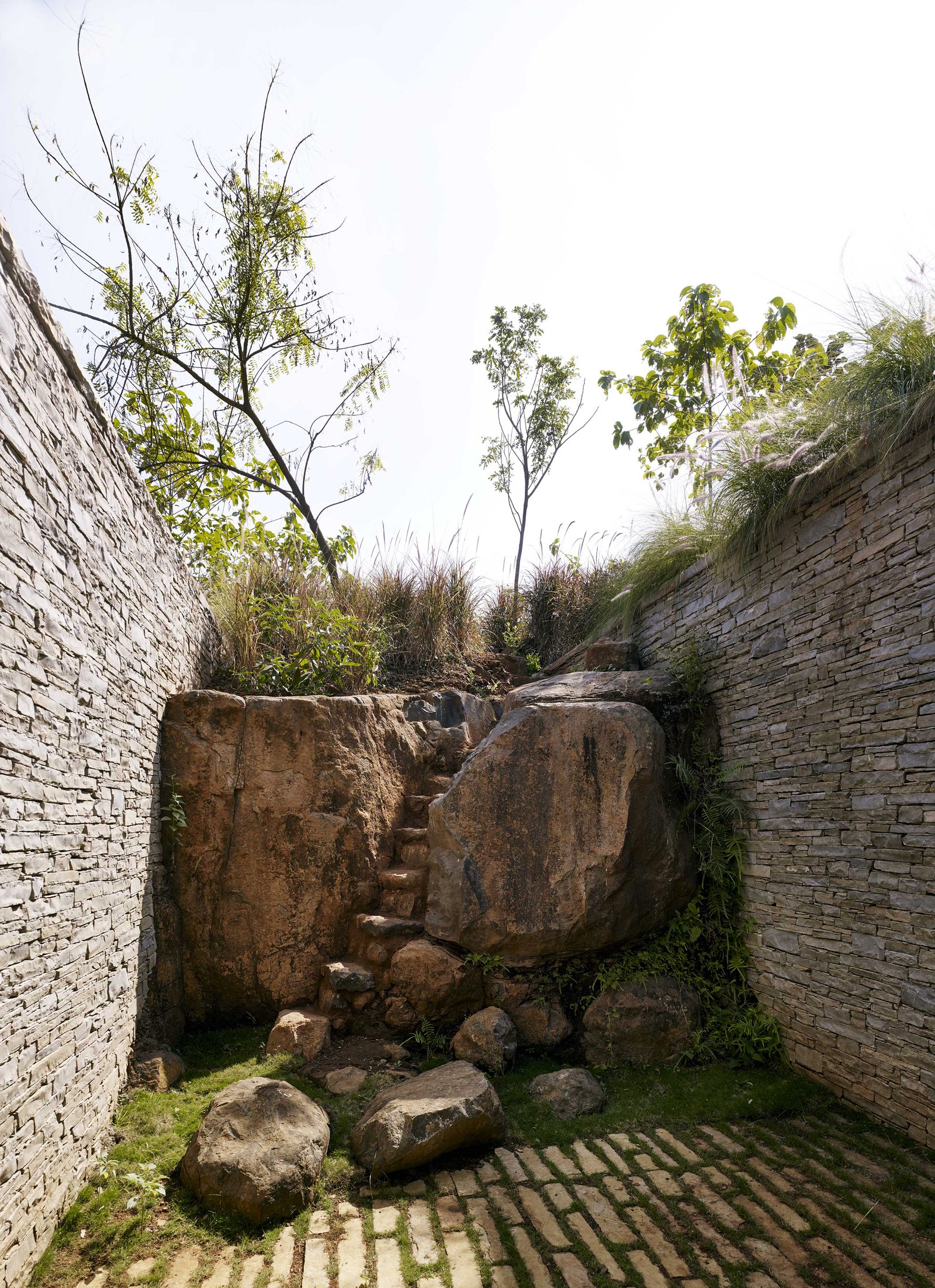
Stone boulders which were discovered during the excavation process and retain the earth.

The kitchen occupies a central position along with the open to sky courtyard.
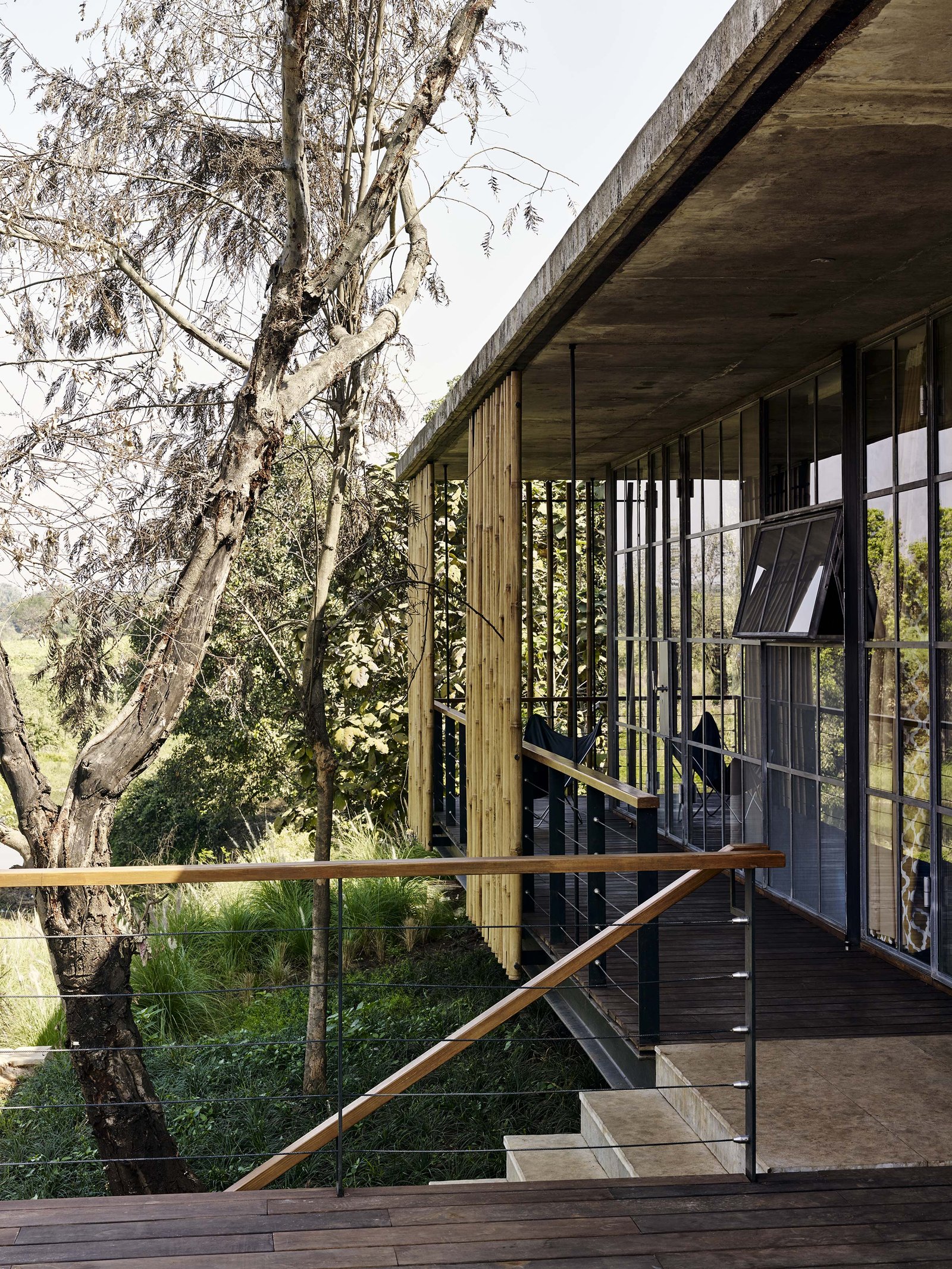
Galvanized steel mullioned windows break down the scale of the front façade of the house.
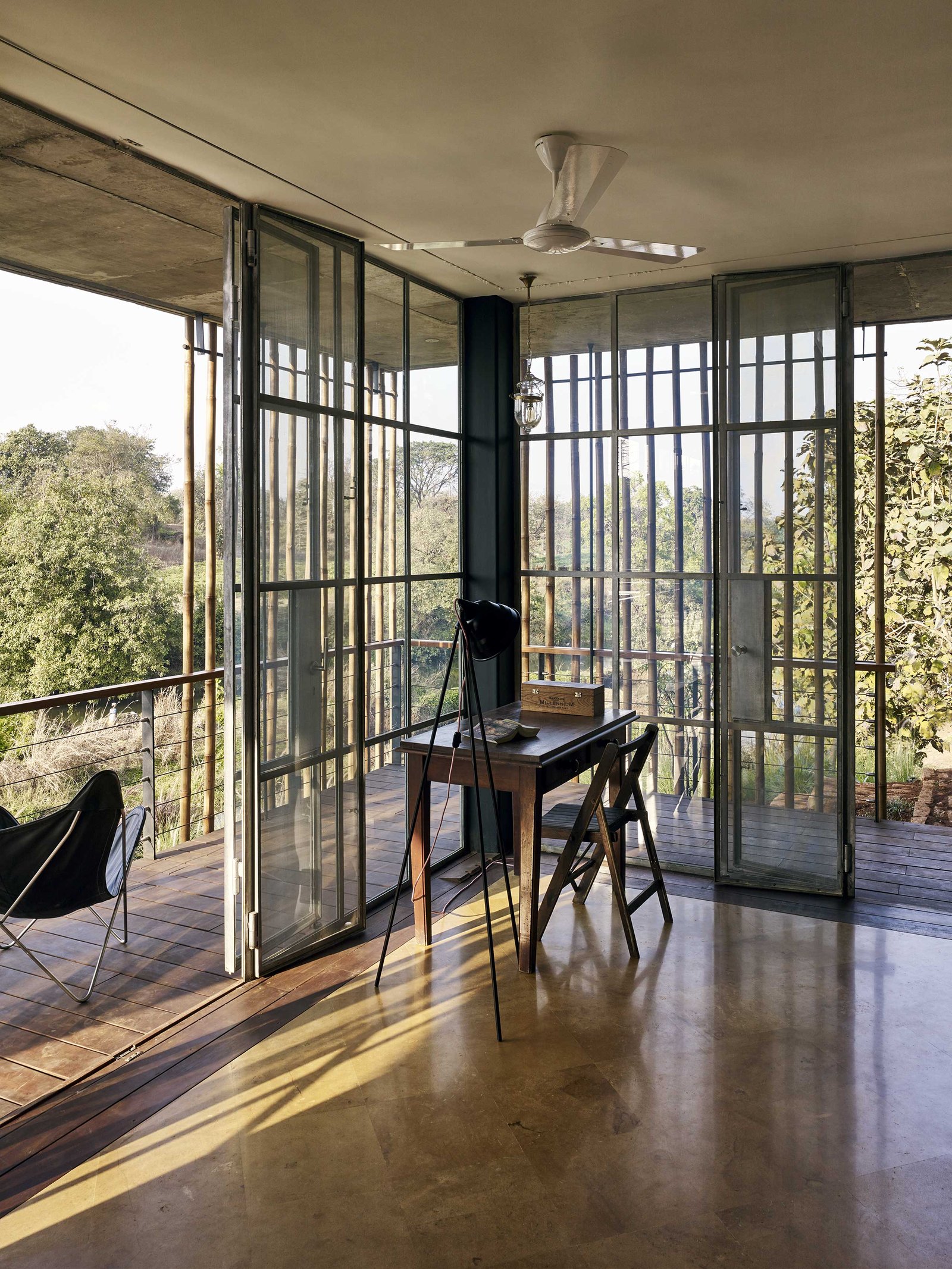
Master Bedroom

Master Bathroom

The house enjoys the views of the river winding its way across the agricultural fields.
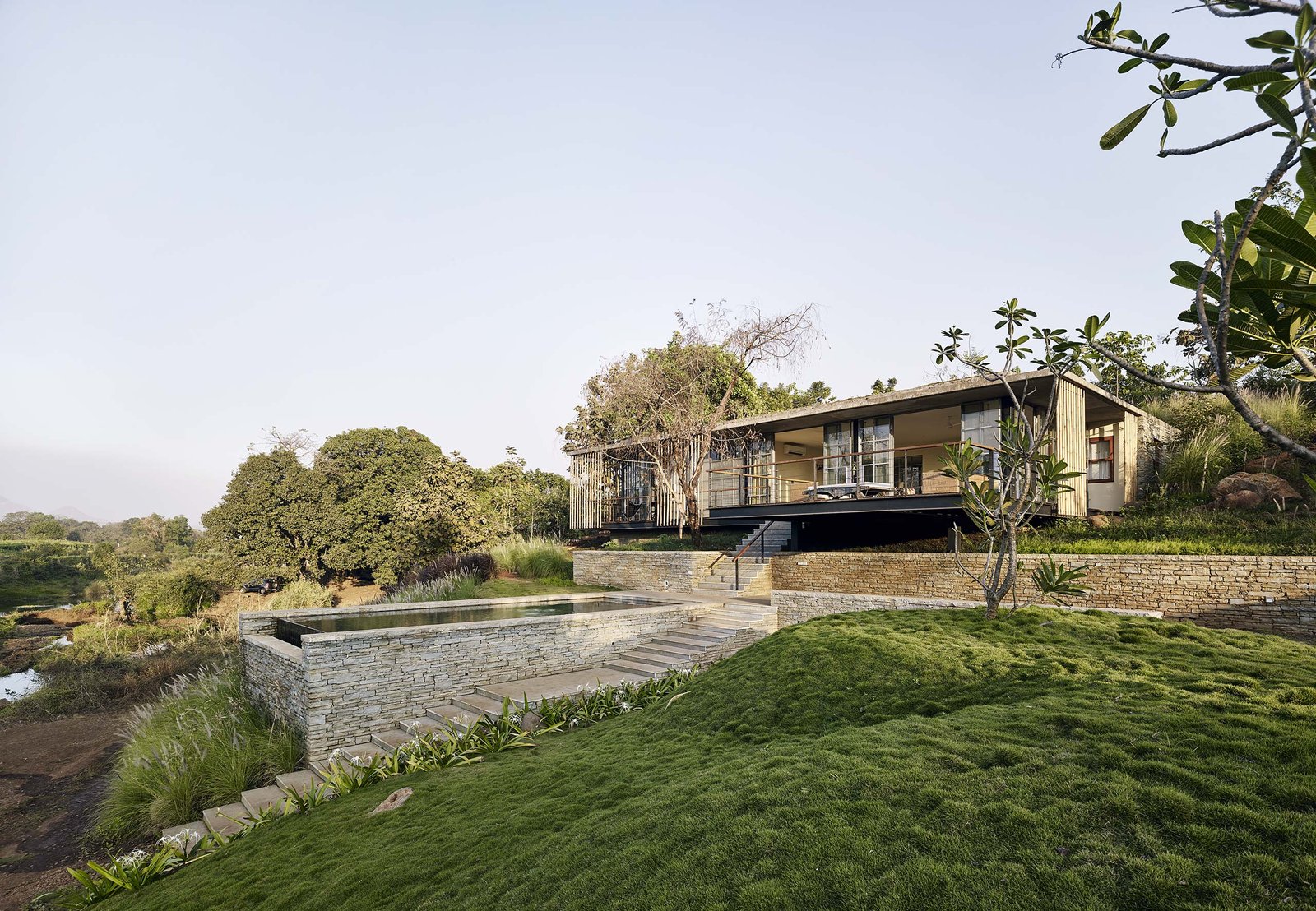
Along the central axis of the underground house landscaped steps lead you along a coarsed stone wall towards the pool deck.
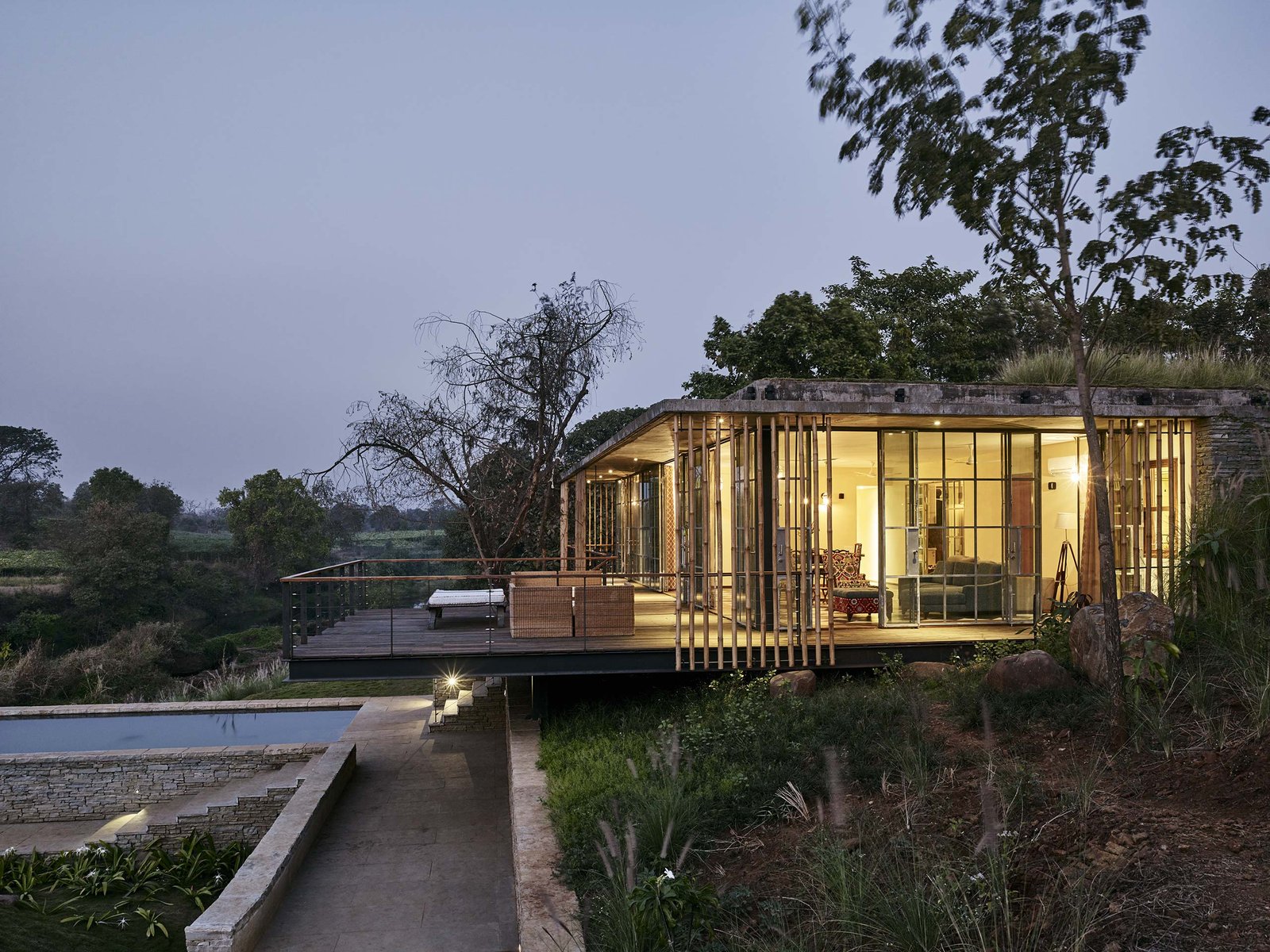

A master bedroom, bathroom, dining and living area sit along the front: the more open face of the house.
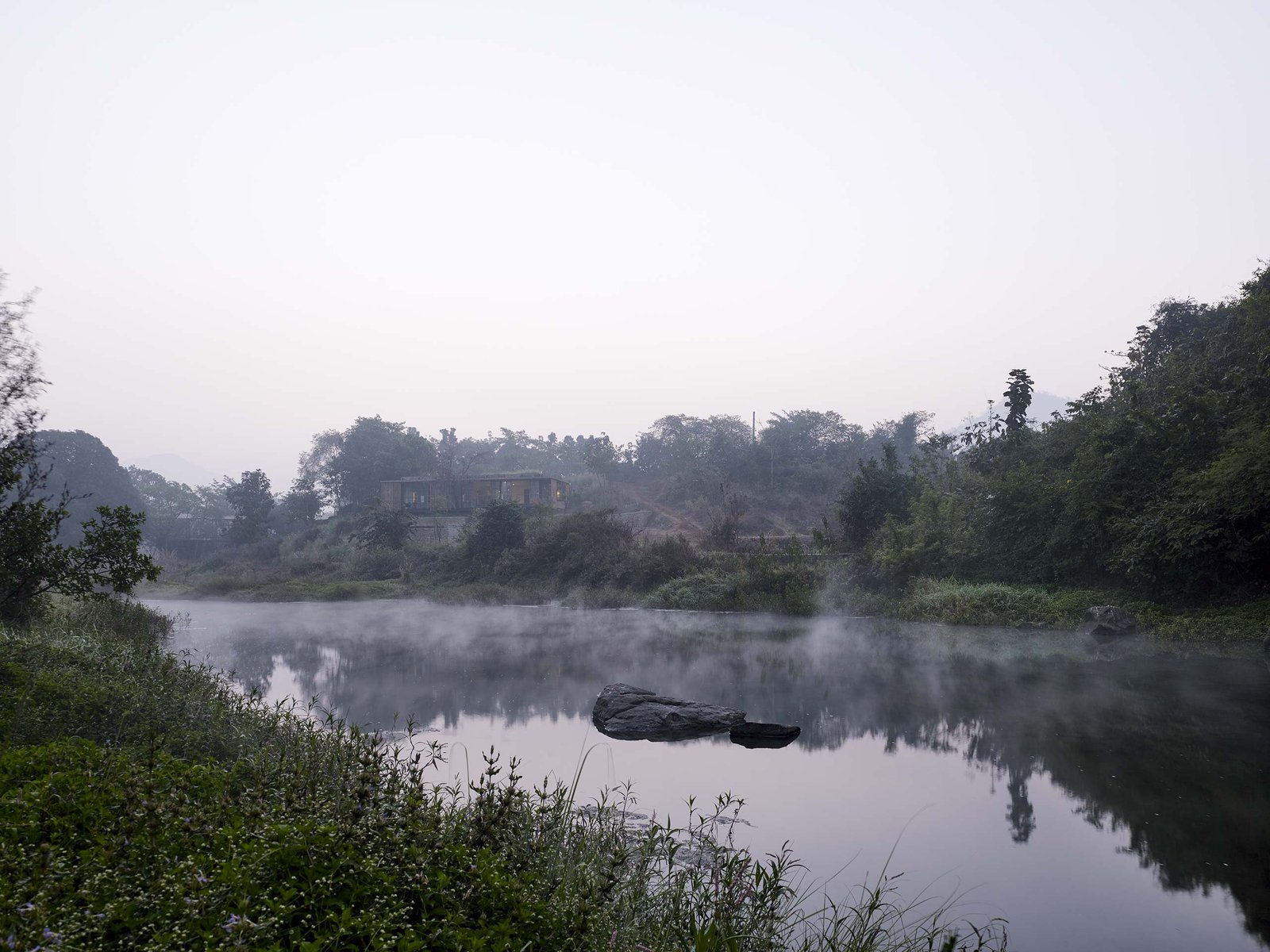
View across the river at dawn

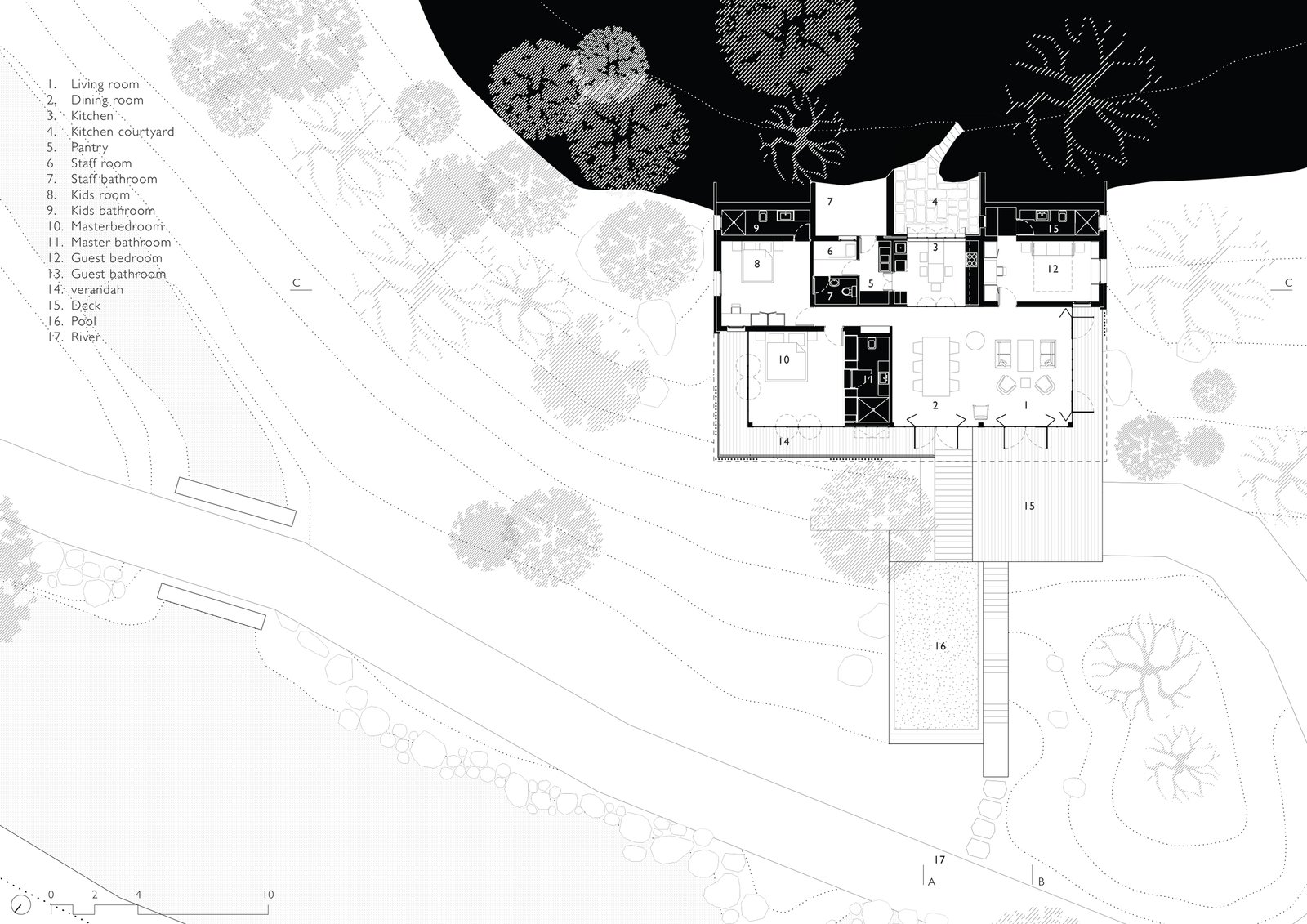
Ground Floor Plan
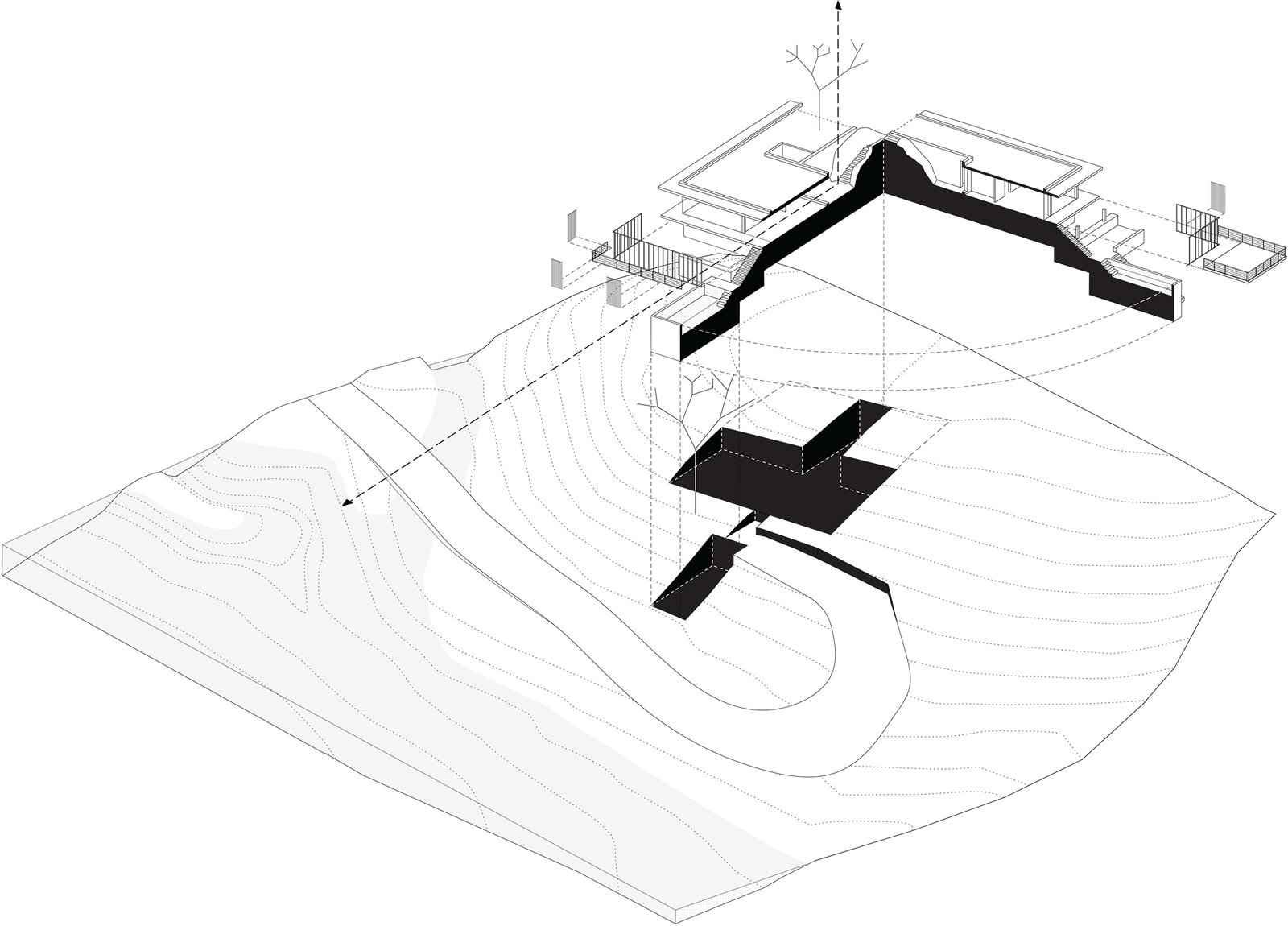
Axonometric View
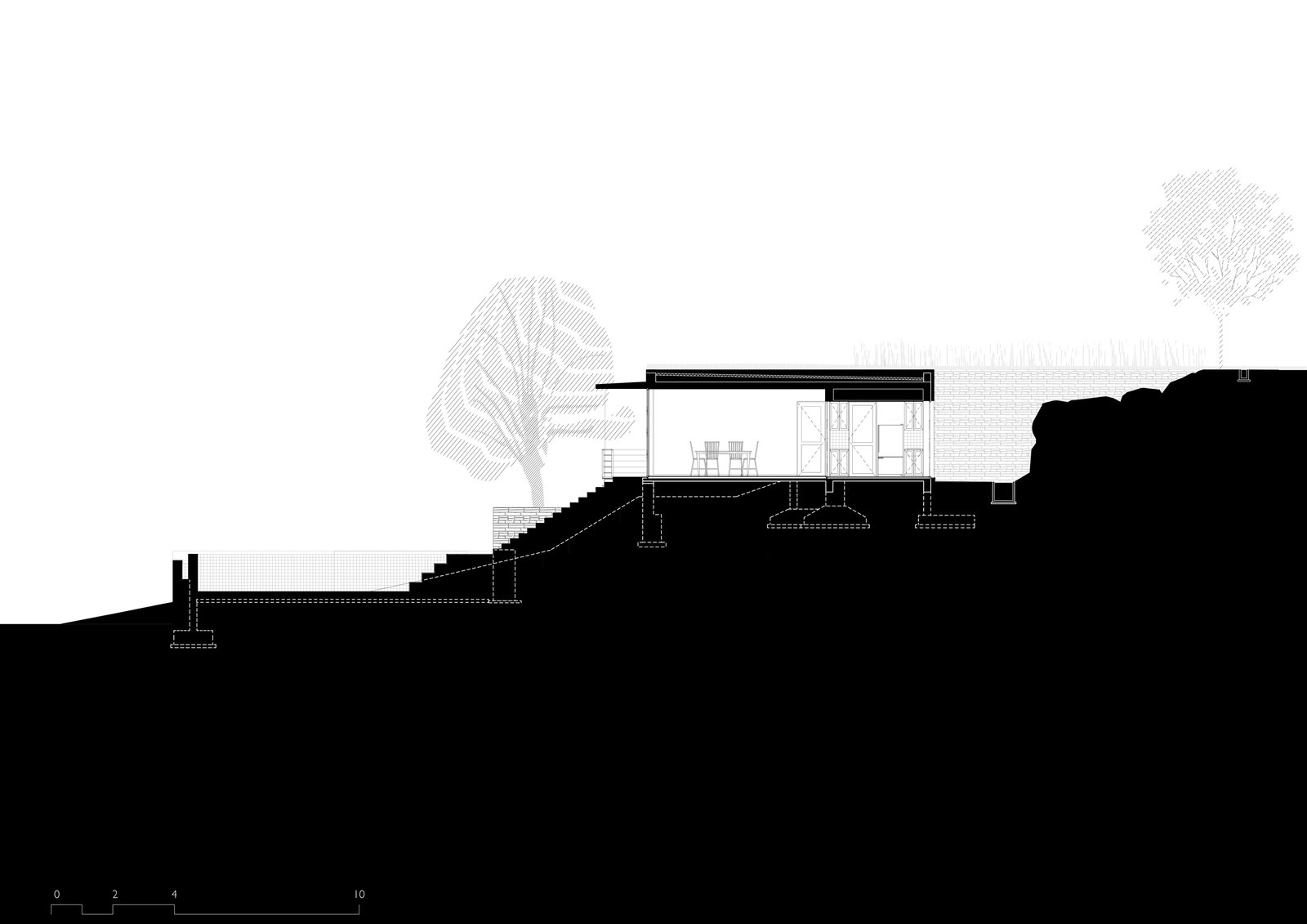
Section-A
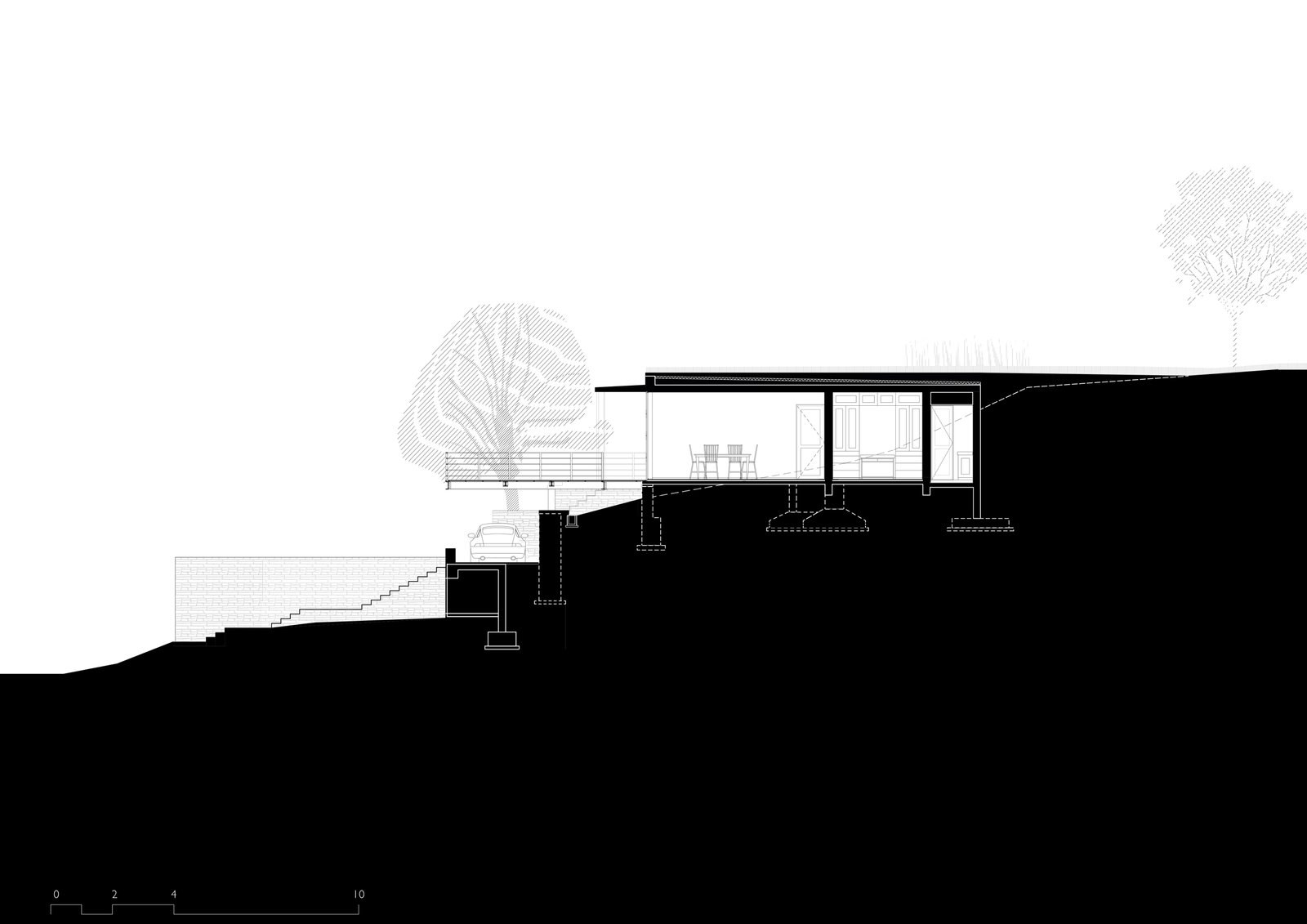
Section-B
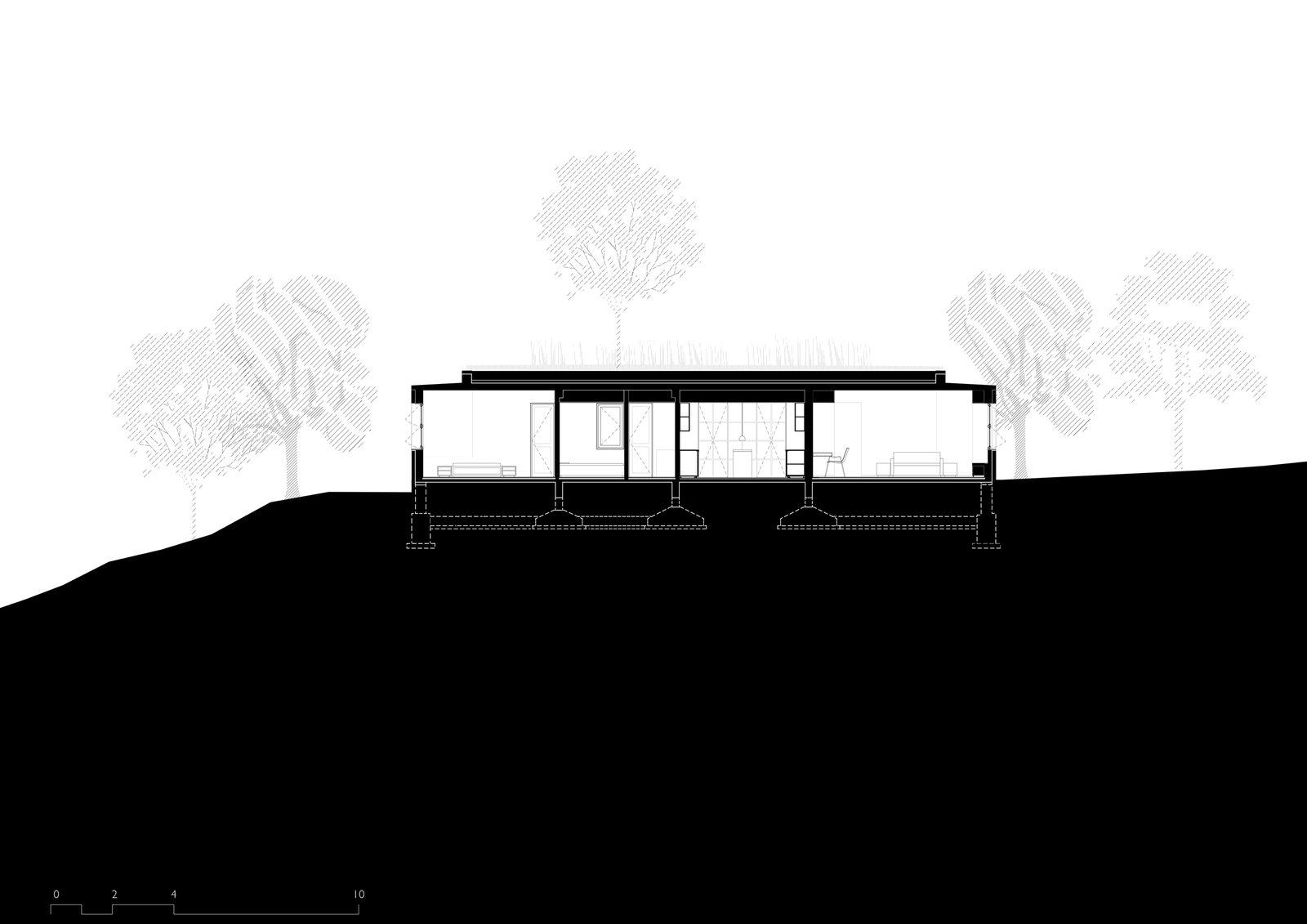
Section-C